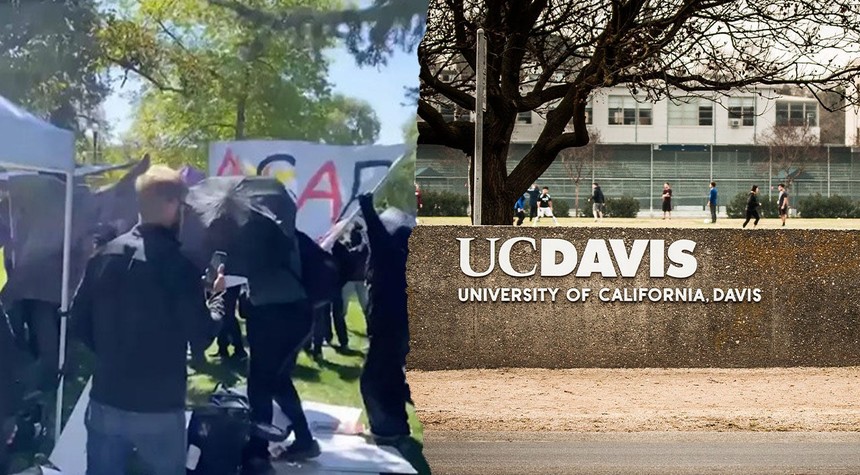The wheels of justice turn slowly, but they do turn. A 22-year-old California woman now faces serious criminal charges for her alleged role in a violent protest that disrupted a conservative speaker’s event at the University of California, Davis back in April.
Joanna Clara Sodke stands charged with one count of conspiracy to commit a riot and one count of battery. The Yolo County District Attorney’s office announced the charges this week, with Sodke scheduled for arraignment Friday afternoon in Yolo Superior Court.
The incident in question occurred April 3 when Turning Point USA hosted commentator Brandon Tatum for what was billed as a “Prove me Wrong” event. What unfolded that day was not debate or dialogue, but something far more troubling.
According to Turning Point USA, masked protesters descended on the event with apparent intent to shut it down. They destroyed camera equipment, tore down a tent, ripped up event signage, flipped tables, and assaulted staff members. Videos from the scene showed the chaos in stark detail: masked individuals pulling down the TPUSA tent and physically shoving event organizers.
Sodke graduated from UC Davis in 2024 with a degree in history. One might hope that studying history would instill an appreciation for free speech and civil discourse, but the allegations suggest otherwise.
This case represents more than just one incident at one campus. It speaks to a broader pattern we have witnessed across American universities, where conservative speakers increasingly face not just protests, but physical intimidation and violence.
The timing of these charges carries particular weight. They come just days after another protest outside a Turning Point USA event at UC Berkeley, where four students were arrested on felony vandalism charges. The pattern is clear, and it is deeply concerning for anyone who values the First Amendment.
These incidents have reignited urgent debates about free speech on college campuses and the treatment of conservative speakers. The question we must ask ourselves is simple but profound: When did disagreement become grounds for violence? When did debate become something to be shut down with force rather than countered with better arguments?
Universities once stood as bastions of free inquiry, where ideas clashed in the marketplace of thought, not in physical confrontations. The scenes from UC Davis in April paint a different picture entirely.
District Attorney Jeff Reisig’s decision to file charges sends an important message. There are consequences for crossing the line from protest to violence, from speech to assault. The right to protest does not include the right to destroy property or attack people.
As this case moves forward through the courts, it will be watched closely by those on all sides of the political spectrum. The outcome may well influence how universities and law enforcement handle similar situations in the future.
The facts will be tested in court, as they should be. But the broader questions remain: Can American universities reclaim their role as forums for open debate? Can we disagree without resorting to violence? The answers matter far beyond any single campus or any single event.
Related: European Antifa Cells Face Foreign Terrorist Classification Alongside ISIS and Al-Qaeda


